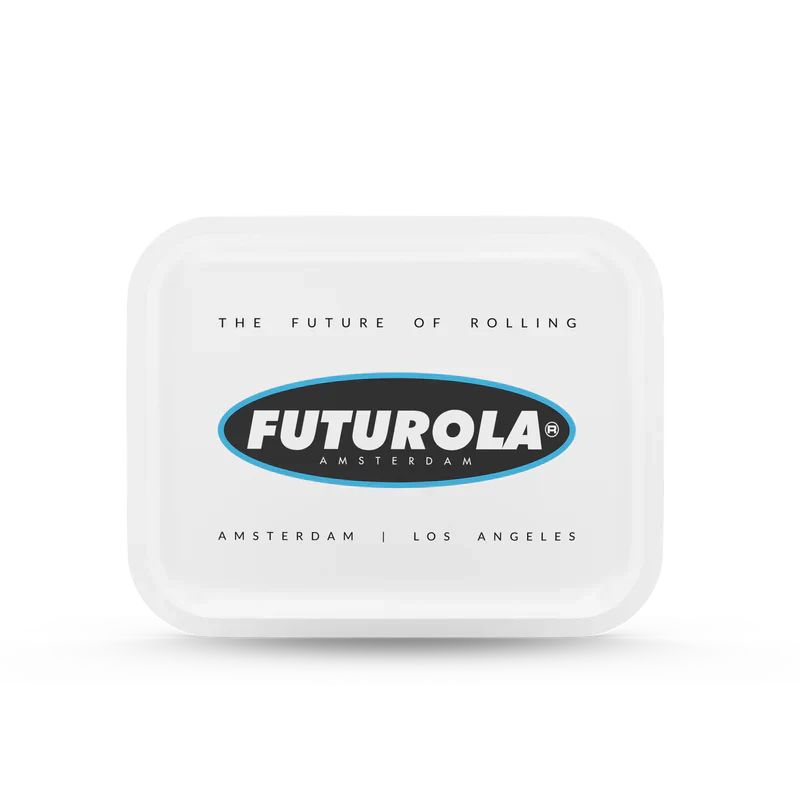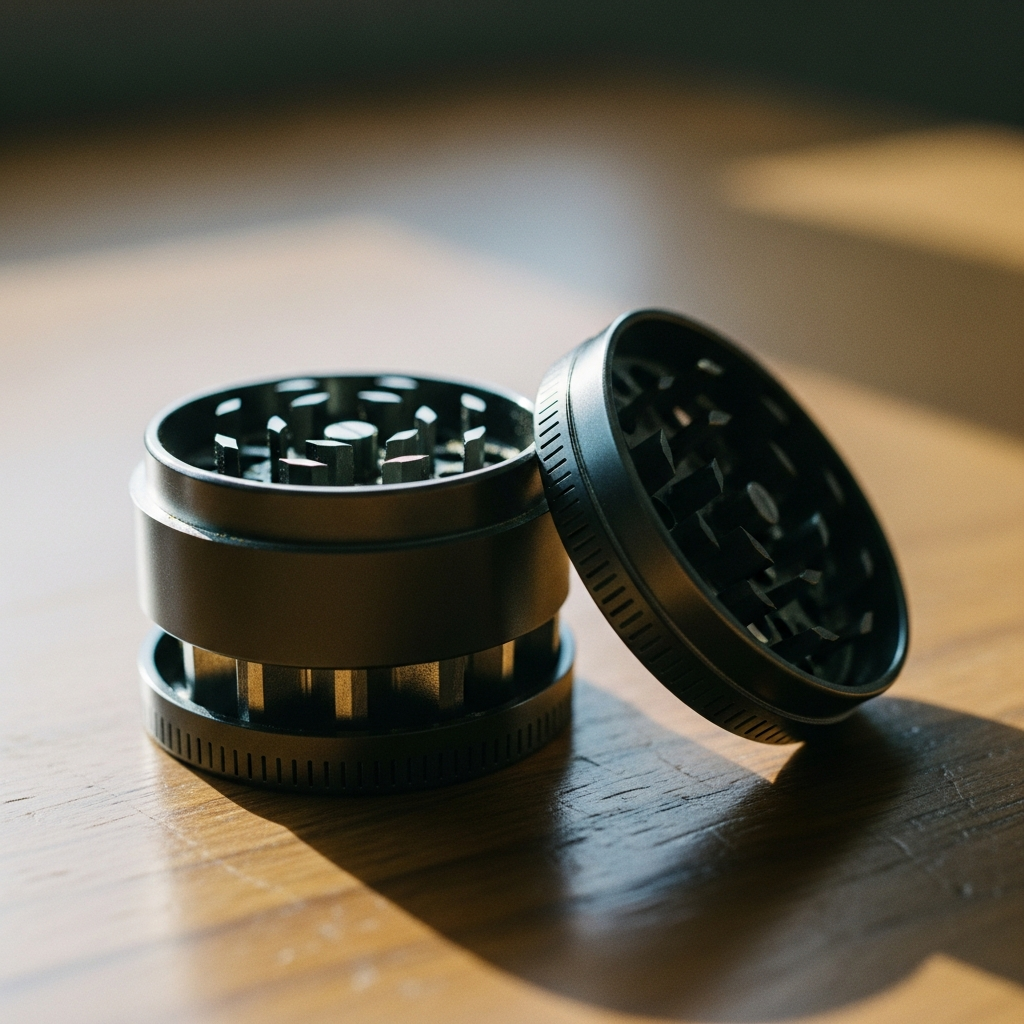You want quality accessories that don't trash the planet. Simple.
The problem? Conventional rolling accessories generate significant waste. Traditional rolling papers use chlorine bleach that releases harmful byproducts into waterways.
Plastic trays end up in landfills. Single-use accessories pile up month after month.
Eco-friendly rolling accessories offer a more sustainable approach. These products utilize renewable materials like hemp and bamboo. They avoid chemical processing. They often last way longer than conventional options. For a comprehensive overview of quality rolling accessories and their features, understanding the full range of available options helps you identify which products genuinely meet sustainability standards.
For businesses, sustainable accessories align with what customers actually want. They reduce costs by using reusable options and bulk purchasing.
This guide provides essential information on eco-friendly rolling accessories. You'll learn which materials are actually sustainable. Not just marketed that way.
We'll cover rolling papers and wraps, reusable filter tips, bamboo rolling trays, storage solutions, and commercial production equipment.
Whether you roll occasionally at home or run a retail operation, this helps you make informed decisions.
Trust me on this. The greenwashing in this industry is absolutely ridiculous.
Disclaimer: Environmental certifications and material availability are subject to frequent changes. Regulations vary by jurisdiction. Verify with current sources before making purchasing decisions.
What Actually Makes Rolling Accessories Eco-Friendly
Determining which rolling accessories are genuinely sustainable requires more than just reading marketing claims. You need to understand what happens during the production process.
The manufacturing process is just as important as the raw materials. Maybe more.
Here's what bugs me. Companies call everything "natural" now. That doesn't mean sustainable. Big difference.
Material Sourcing and Renewability
Not all "natural" materials are created equal. Hemp grows to maturity in 90-120 days. No pesticides needed. No irrigation required.
I've seen hemp grown in terrible soil that would kill most crops. It thrives.
Bamboo reaches maturity in 3-5 months, compared to years for traditional wood. However, some bamboo processing methods use harsh chemicals. Ask about production methods before assuming bamboo automatically means sustainable.
Hemp stands out as a zero-waste crop. Every part of the plant is used in manufacturing. Nothing goes to waste during production. The plant grows in poor soil and actually improves soil quality for future crops.
Manufacturing Processes That Actually Reduce Impact
Chemical-free production makes a real difference here. Traditional wood pulp papers often use chlorine bleaching. That process creates dioxins and organochlorines. Seriously bad for waterways.
Premium, eco-friendly papers are produced from specialized European manufacturers without chlorine bleaching. They maintain the natural fiber color.
I'll admit I was skeptical initially. Then I tried them.
The manufacturing location matters significantly more than most people realize. European facilities maintain stricter environmental standards. REACH regulations and ISO 14001 certification requirements. Real oversight.
Mass production operations in unregulated regions? They cut every corner imaginable.
Papers produced in France by specialized manufacturers utilize techniques that are impossible to replicate at large-scale facilities. Some companies have spent decades developing paper formulas. They achieve 12 gr/m² thickness without chemical reinforcement.
Certifications Worth Actually Knowing
Look, various certifications claim environmental benefits. Not all carry equal weight. Some verify specific claims. Others just require paying a fee.
Look for certifications related to biodegradability under ASTM D6400 standards. Compostability meets BPI requirements. Those actually mean something.
Some manufacturers provide detailed information about their production processes. Fiber sourcing locations. Chemical-free verification. Others use vague environmental marketing language. That's usually a red flag.
Companies that have operated for decades demonstrate a commitment beyond trend-following.
Hemp Papers and Wraps for Better Performance
Hemp papers changed the rolling accessories market over the past decade. They perform better than traditional options while reducing environmental impact.
Why hemp works so well helps you appreciate the quality difference. These papers deliver superior performance characteristics.
Why Hemp Outperforms Traditional Papers
Hemp papers consume 20-30% more slowly than wood pulp alternatives. More evenly, too. The natural fibers create consistent thickness. You get fewer channeling issues.
The hemp plant requires minimal water, 70% less than cotton. No pesticides needed to grow. Every part gets used during production.
Hemp papers preserve aroma and flavor better than heavily processed alternatives. Wood pulp papers often have a distinct paper-like taste. Hemp brings less interference, maintaining the natural character of your material.
The papers feel different in your hands. Stronger tensile strength combined with thinner gauge. Most people prefer the texture after a few uses.
Chemical-Free Production Methods
Premium hemp papers are made without chemical additives. No chlorine. No calcium carbonate. No synthetic adhesives.
Papers produced in specialized French facilities maintain a consistent thickness of 12-14 gr/m² without chemical reinforcement. Through precise fiber alignment and compression techniques.
Only certain manufacturers can produce ultra-thin papers with a weight of less than 13 g/m². Primarily in France and Spain, with specialized equipment. French facilities pioneered techniques for 12 gr/m² paper in the 1970s.
Futurola developed its base paper over the course of years of refinement. The Amsterdam-based manufacturer, founded in 1996, collaborates exclusively with French manufacturers that are capable of producing without the use of chemicals.
Most companies can't replicate these techniques.
Terpene-Infused Options for Better Experience
Modern hemp wraps now include terpene infusion. Botanical aromatic compounds extracted from plants. They add flavor complexity without synthetic chemicals.
Premium collections like the Futurola x Tyson line feature terpene-infused wraps and cones. Aromatic profiles include citrus, pine, and berry varieties. These products prove sustainability doesn't mean sacrificing quality.
Bamboo and Alternative Material Accessories
Beyond papers and wraps, other materials offer sustainable benefits. Each material has specific advantages and limitations.
Bamboo Rolling Trays and Their Benefits
Bamboo trays provide serious durability. Janka hardness ratings of 1,380-1,410 lbf. At the same time, it remains biodegradable within 1-3 years in composting conditions.
The material grows faster than any other plant. Reaches 75 feet in height within 3-5 months. Compare that to decades for hardwood trees.
Bamboo requires 30-50% less water than traditional wood. It regenerates without replanting. The root system stays intact after harvesting.
These trays are designed to last 5-10 years with proper care and maintenance. The material resists moisture better than standard wood due to its natural silica content.
I've dropped bamboo trays multiple times. Still works perfectly.
Rice and Alternative Papers
Rice papers offer an extremely thin option. 10-12 gr/m². Produces 40% less ash than standard papers. Leaves virtually no residue.
These papers feel delicate. First-time users sometimes struggle with tearing. Practice makes perfect. Once you adjust, rice papers provide an excellent experience.
The consumption rate is noticeably slower. Approximately 30-40 seconds longer per inch compared to standard papers.
Natural Palm Leaf Products
Palm leaf wraps offer a tobacco-free and chemical-free alternative. These products use fast-growing leaves that regenerate every 30-45 days from established palms.
Palm leaves require zero processing chemicals. Only washing, drying, and cutting. These are leaves in their completely natural form.
The flavor profile is distinct, adding earthy notes. Preferences vary significantly among users. Try them to determine if the natural palm character suits your preferences.
Reusable Filter Tips That Replace Disposables
Switching from disposable to reusable filters eliminates ongoing waste. The initial investment pays off quickly.
Glass Filter Tips for Long-Term Use
Glass tips eliminate the need for disposable alternatives completely. A single reusable tip replaces 200-500 cardboard filters annually.
These accessories cool the draw naturally by 15-20°F through thermal mass absorption. Medical-grade borosilicate glass withstands heat up to 500°C.
A single glass tip costs between $10 and $ 20. Replaces hundreds of disposable filters worth $50-100 annually. You achieve ROI within 2-4 months.
Glass tips require regular cleaning every 5-10 uses. Isopropyl alcohol, at a concentration of 91-99%, dissolves resin quickly. The cleaning takes minutes.
Ceramic and Silicone Options
Ceramic filters provide similar cooling and reusability benefits to glass. Different aesthetic appeal. The material stays cool during use.
Medical-grade silicone tips offer flexibility and durability. Temperature resistance from -40°F to 500°F. They're nearly indestructible.
Ideal for people who break glass accessories. We all know someone like that.
Natural Biodegradable Filters
Corn husk and hemp filters provide a middle ground between disposable paper and permanent glass. They break down completely in 30-60 days in home composting conditions.
These options appeal to people wanting disposability without environmental guilt. The performance matches paper filters. The environmental benefits come from biodegradability.
Scaling Eco-Friendly Practices for Pre-Roll Production
Business operations face different challenges than individual users. Here's the good news. Eco-friendly options often improve efficiency.
Industrial Equipment That Supports Sustainability
Machines that fill 50-500 cones simultaneously reduce energy use per unit by 60-75%. The Knockbox Series from Futurola shows this approach well. Single operators can process 1,000 to 10,000 pre-rolls per shift.
Industrial shredders equipped with precision-ground blades can maximize yield by 15-25%. Better processing reduces trim waste from 20-30% down to 5-10%.
Equipment designed for efficiency uses less power while maintaining output. Upgrading equipment often pays for itself through reduced operating costs.
Sustainable Cone Options for Business Operations
Pre-rolled cones reduce production time by 70-80% compared to hand-rolling. They use consistent amounts of paper. Within 2-3% variance compared to 15-25% variance in hand-rolling.
Hemp cones offer sustainable options in various sizes. 70mm, 84mm, 98mm, 109mm, or 140mm. Right-sizing prevents material waste.
Bulk purchasing in quantities of 1,000-100,000+ units reduces packaging waste by 40-60%. Consolidates shipments.
Trust me on this. I've seen facilities try to save money with cheap cones. They always regret it.
Transitioning Your Production to Eco-Friendly Materials
Start by testing eco-friendly options with small batches. 100-500 units. You'll identify handling differences before full-scale conversion.
Train staff on material changes. Hemp papers feel different than wood pulp. Employees need time to adjust techniques.
Most businesses achieve 95-98% quality acceptance rates after a 2-4 week adjustment period. Staff often prefer sustainable materials once they're accustomed to them.
Wholesale Strategies for Sustainable Inventory
Buying sustainable accessories in bulk quantities of 10,000 units or more reduces the per-unit cost by 30-50%. Establish direct purchasing relationships with manufacturers who prioritize sustainability.
European manufacturers often maintain higher environmental standards. Products from companies with decades of experience tend to outperform those from newer brands.
Futurola's 25+ years of work demonstrate commitment beyond trend following.
Storage and Organization Tools Made from Sustainable Materials
Proper storage protects your products. Sustainable storage solutions eliminate plastic while providing better preservation.
Hemp and Bamboo Storage Containers
Hemp plastic containers offer durability that lasts 3-5 years in normal use. It has a biodegradability rate of 3-6 months under industrial composting conditions.
Bamboo containers with airtight silicone seals maintain a relative humidity of 55-62%, which is ideal for storing paper. The material naturally resists moisture through silica deposits.
Glass Jars for Zero-Waste Storage
Glass storage eliminates plastic. These containers are endlessly reusable for decades. Infinitely recyclable without quality degradation.
Amber or dark glass prevents UV degradation by blocking 97-99% of harmful wavelengths. Clear glass works fine if stored in dark places.
Mason jars work perfectly well. Standard canning jars provide excellent storage at a low cost.
Organizing Your Sustainable Rolling Station
Bamboo trays with 3-6 separate compartments keep accessories organized. Papers in one section. Filters in another. Ground material in a third.
A well-organized station makes sustainable choices more convenient than disposable alternatives. Everything stays in one place.
Proper Disposal and End-of-Life Considerations
What happens to products after use matters as much as how they're made. Regional capabilities vary wildly. Check your local situation.
What Actually Biodegrades and What Does Not
Hemp and rice papers biodegrade quickly in compost. Achieve 90%+ decomposition within 45-90 days under optimal conditions. They'll disappear within 6-12 weeks under proper home composting conditions.
Bamboo products require 1-3 years for complete decomposition. Still beats plastic by centuries.
Glass and metal accessories should be recycled rather than thrown away. They don't biodegrade. Recycling allows materials to be reused indefinitely.
Here's what drives me crazy. Biodegradable doesn't always mean compostable at home. Many products require industrial composting facilities that operate at temperatures of 140°F to 160°F.
Check what's actually available in your area.
Recycling Guidelines for Different Materials
Glass should be placed in recycling bins after removing any metal components. Rinse residue first. Clean it first. Simple step.
Used papers can be added to compost if they are free from synthetic additives and are not contaminated with hazardous materials. Check what's actually in your papers. Some "natural" papers still contain adhesives.
Bamboo products may be compostable depending on finishing treatments. Unfinished bamboo composts successfully. Polyurethane-coated pieces don't biodegrade.
Check local recycling guidelines. Capabilities vary dramatically. What's recyclable in one city might be trash in another.
Cleaning and Maintaining Reusable Accessories
Proper care extends the life of reusable accessories from 2-3 years with neglect to 5-10+ years with regular maintenance.
Glass and ceramic tips need regular cleaning. Isopropyl alcohol at 91-99% concentration. Soak them for 5-15 minutes. Rinse thoroughly.
Bamboo trays should be wiped clean after each use. Treat them with food-safe oil every 3 to 6 months. This prevents drying and cracking.
Regular maintenance prevents buildup. It's easier than doing a deep clean later.
Making Smart Purchasing Decisions for Sustainable Accessories
Evaluating products requires looking beyond marketing language. Learning to identify genuine quality protects you from greenwashing.
Quality Indicators Beyond Marketing Claims
Look for specific details about the manufacturing process. Facility locations. Chemical usage. Rather than vague environmental claims.
Products should specify material sources. Exact species. Cultivation region. Production locations with facility names.
Third-party certifications, such as USDA BioPreferred, FSC, or ASTM D6400, provide verifiable environmental claims. Look for those.
Avoid accessories with excessive packaging. Products wrapped in multiple layers of plastic contradict sustainability goals.
European-manufactured products often meet stricter environmental standards. REACH chemical restrictions ban 1,000+ substances.
Companies founded decades ago have proven their commitment. Amsterdam-based Futurola started in 1996. That longevity demonstrates a serious commitment to quality.
Balancing Cost with Environmental Impact
Eco-friendly accessories may initially cost 15-40% more. Often provide better value over time. Reusable glass tips, costing $15, replace $50-$ 100 in disposables annually.
A $20 glass tip used 500 times costs $0.04 per use. Versus $0.15-0.25 for cardboard filters. Calculate total cost over 12-24 months.
The math strongly favors reusable options. Not even close.
Budget constraints are real. Start with one or two changes. You don't need to overhaul everything immediately.
Where to Source Reliable Eco-Friendly Products
Established manufacturers with documented sustainability practices offer more reliable options. Companies that have operated for decades demonstrate commitment.
Look for businesses that provide educational resources. Detailed product specifications. Manufacturing process descriptions. That transparency suggests confidence in their methods.
Collaborations with industry icons, such as Mike Tyson or Snoop Dogg, require meeting high-quality standards. Those partnerships wouldn't happen with inferior products.
Companies focused exclusively on rolling accessories develop deeper expertise. Their products typically outperform those of brands that offer rolling accessories as a side business.
Your Path to Sustainability
Every small change toward eco-friendly rolling accessories reduces your environmental impact. Switching to just hemp papers saves 5-10 pounds of bleached paper waste annually.
Start with one category, typically rolling papers or filter tips. Switch to hemp papers. Add a glass filter tip. Expand from there.
For businesses, 71% of consumers under 35 prefer brands with verified environmental commitments. Many consumers actively seek brands aligned with their environmental values.
Cost reductions come through reusable options, saving 30-50% annually. Bulk purchasing reduces per-unit costs by 25-40%.
What matters most is making informed choices based on actual sustainability, verified through third-party certifications and transparent manufacturing documentation.
Look for products from established manufacturers, companies operating for 10+ years with documented supply chains. Futurolawas founded in 1996. That kind of longevity matters.
Your rolling routine and the planet can both benefit from thoughtful choices. Whether you roll occasionally at home or operate a production facility, sustainable options exist for your needs.
Futurola's range of eco-friendly products demonstrates that sustainability and quality aren't mutually exclusive. 100% hemp papers. Terpene-infused cones. Industrial-scale filling equipment.
Premium materials like chemical-free hemp fiber and medical-grade borosilicate glass create accessories with superior performance characteristics. 20-30% slower consumption rates. Better flavor preservation. While reducing environmental impact by 60-80%.
Start small. Make one change. Experience the difference. Build from there.
Sustainability becomes easier once you find options that work.
This analysis is for informational purposes only. Material availability and environmental standards change frequently. Always follow local laws regarding applicable products and materials.





LEAVE A COMMENT
All comments are moderated before being published.
This site is protected by hCaptcha and the hCaptcha Privacy Policy and Terms of Service apply.